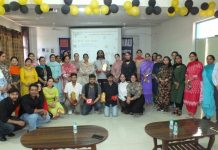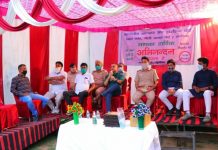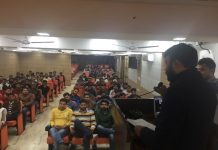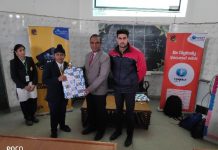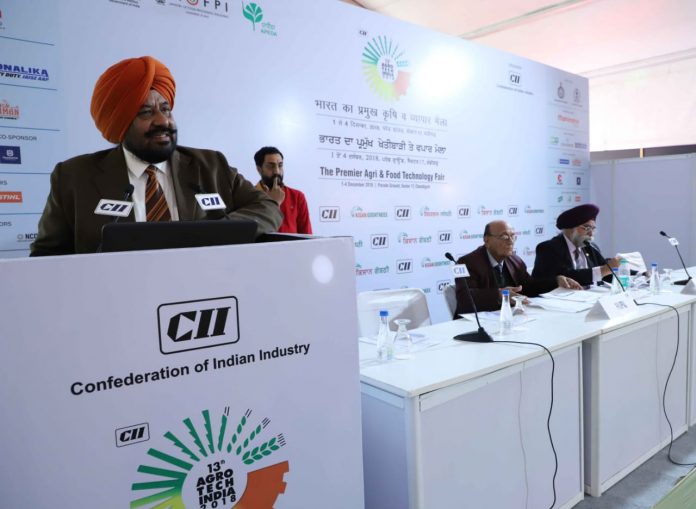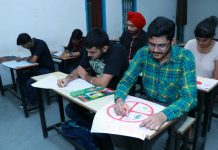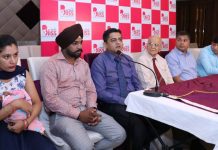
Chandigarh
4 December 2018
DIVYA AZAD
Wrapping up the last day of discussions at Kisan Goshthees at the 13th
The spotlight this year has been on dairy farming, among other popular practices, making it evident that Punjab’s farmers have discovered the sustainability of the practice, especially in lieu of the struggles that those growing cash crops are facing. The panelists at the seminar included experts from the industry, including Prof P K Uppal, President, Sahiwal & Indigenous Cattle Society (SICS) and Former Advisor, Department of Animal Husbandry, Dr.Inderjeet Singh, Director, Department of Animal Husbandry, Punjab; Dr H S Kahlon, General Secretary, Sahiwal & Indigenous Cattle Society (SICS); Dr Berwyn Clarke, Managing Director, PBD Biotech; and Mr Balbir Singh
Emphasizing on the role of the Dairy Development Department in the marketing of milk from indigenous cows, Dr Inderjeet Singh, Director, Department of Animal Husbandry, Punjab, said, “The Department provides subsidy on establishing bulk milk coolers, dairy product outlets, farm gate value addition, direct marketing, milk transport vehicles and establishing of milk chilling centres.” He said it was better for small-scale farmers to join hands in installing a common shed for their milch cattle, helping them save resources and earn more. There are 91 milk producer organizations in Punjab and for business farming; and FPOs are the right way.
Mr Harsh Mohan Walia enumerated the reasons for the success of indigenous breeds such as Gir, Sahiwal, and Red Sindhi in dairy farming, saying factors such as the length of their intestines and their ability to sweat out the toxins better translated into high quality milk that is sold for as much as Rs. 80/kg. “They need low-cost sheds, as opposed to the foreign breeds, which are also not acclimatized to hot Indian weather,” he added.
Mr Walia announced the coming up of Gokul Gram at Bir Dosanj, Nabha, on an area of 74 acres, being made at a budget of Rs 12.5 crores. The special laboratory and semen centre will store the semen of high-quality indigenous bulls. Highlighting the increased chances of economic feasibility in using indigenous cows for dairy farming, Dr. H S Kahlon said, “The inception of the Sahiwal and Indigenous Cattle Society in 2014 has led to the formation of policies to promote Sahiwal and other indigenous cows.”
Dr Berwyn Clarke from the UK introduced the audience to Actiphage, a diagnostic system for detecting Johne’s Disease and Bovine TB in as little as six hours from the milk and blood samples of cows. Laying emphasis on the impact of new technology in animal management, he said the technology was very popular in Canada and since it can pick infection during any stage, it can help reduce losses as a result of disease.
















